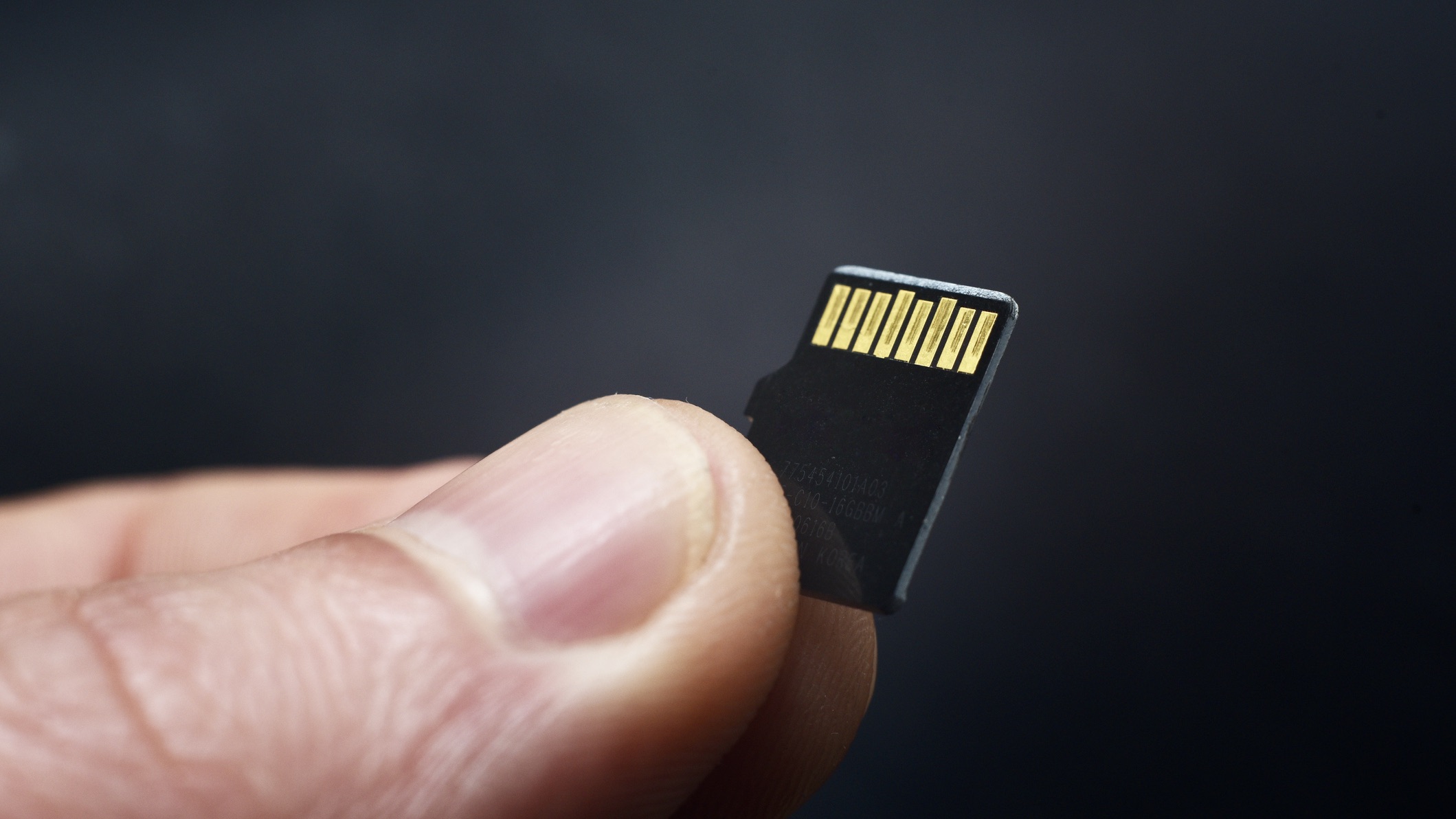Samsung’s speedy new microSD cards are built for on-device AI and toughness
The 256GB model is slated to have a read speed of 800MB/s

Sign up for breaking news, reviews, opinion, top tech deals, and more.
You are now subscribed
Your newsletter sign-up was successful
Samsung just revealed a new generation of microSD cards that support the SD Express standard enabling lightning-fast performance.
In the official announcement post, the company states it has begun sampling tests for the 256GB model which they claim will have a maximum read speed of 800MB per second. To put that into perspective, our pick for the best SD card for 2024 is the Transcend SDXC UHS-II U3 and it only has a top speed of 285MB per second. Samsung is even trying to surpass the best SATA SSDs as those drives peak at 560MB.
A 1TB UHS-1 model is also in the works. It’s currently entering into mass production although the post doesn’t say what the read speed will be. Instead, Samsung decided to focus on the card’s durability. The 1TB version is being designed to withstand “challenging environments” with features giving protection against water, resistance to extreme temperatures, and, apparently X-ray blasts.
The perfect time
The inclusion of SD Express is particularly noteworthy because the standard has been around since 2018 although not a single brand has taken advantage of the tech this entire time. This is due to two reasons.
First, there simply aren’t many devices that can take advantage of the speed. And second, SD Express cards run extremely hot. They can hit temperatures as high as 96 degrees Celsius (or around 204 degrees Fahrenheit). That’s nearly the boiling point of water. To beat the heat, Samsung is equipping their future product with Dynamic Thermal Guard to ensure things are operating at an optimal temperature, “even during long usage sessions.”
The 256GB SD Express microSD card will launch sometime this year. An exact date was not given. The 1TB UHS-1 microSD card has a more specific window as it'll release within Q3 2024. We reached out to Samsung for more details. This story will be updated at a later time.
Analysis: Setting up for the future
You may be thinking, “Why now?” Does Samsung believe it’s finally time to implement SD Express? As it turns out, yes. The company says these cards will be the “solutions required for tomorrow’s… on-device AI applications.” AI features like chatbots rely on cloud servers for storage and functioning. They can’t be placed inside a smartphone. However, multiple companies, including Samsung, are working on “AI phones”, mobile devices capable of housing artificial intelligence models.
Sign up for breaking news, reviews, opinion, top tech deals, and more.
Imagine being able to talk to something like ChatGPT without needing constant access to the cloud. It’s entirely possible. The tech giant has certainly been proactive in promoting its AI tech to users. But there is one use case we don’t see other reports mention – video games.
A Reddit user on the GamingLeaksAndRumours subreddit argues the rumored Nintendo Switch 2 may have a difficult time with “storage expansion as current SD cards are far too slow and NVMe SSDs” are too big. Samsung’s SD Express models are the perfect solution. They’re small, fast, have lots of space, plus sport “manageable thermals”.
Granted, this is all pure speculation. There is no proof of any of this or even a hint, but it is fun to think about. What is meant to have just one use case might actually have several.
While we're on the topic of storage, check out TechRadar's list of the best external hard drives for 2024.
You might also like
- Samsung Galaxy Z Flip 6: latest news, rumors, and everything we know so far
- Mystery Chromebook with dedicated AI button could be a new Samsung Galaxy Chromebook Plus, and I really hope that’s the case
- Your next Samsung Galaxy phone could have Face ID-beating facial recognition tech if Metalenz's claims hold up

Cesar Cadenas has been writing about the tech industry for several years now specializing in consumer electronics, entertainment devices, Windows, and the gaming industry. But he’s also passionate about smartphones, GPUs, and cybersecurity.